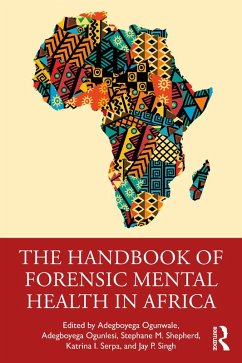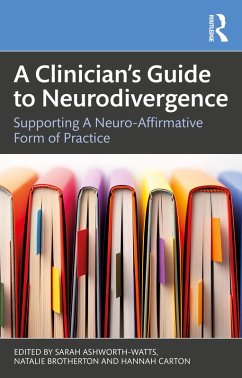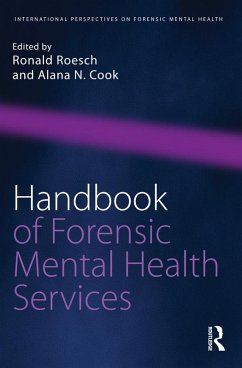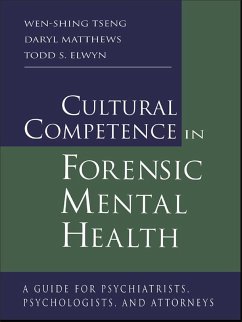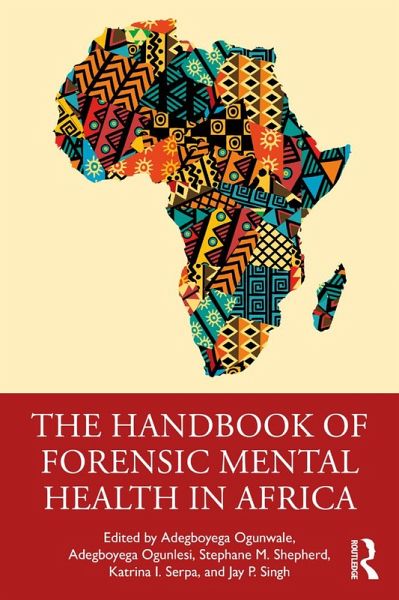
The Handbook of Forensic Mental Health in Africa (eBook, ePUB)
Versandkostenfrei!
Sofort per Download lieferbar
44,95 €
inkl. MwSt.
Weitere Ausgaben:

PAYBACK Punkte
22 °P sammeln!
The Handbook of Forensic Mental Health in Africa traces the history of forensic mental health in Africa, discussing the importance of considering cultural differences when implementing Western-validated practices on the continent while establishing state-of-the-art assessment and treatment of justice-involved persons.Experts in the field of forensic mental health throughout Africa explore the current state of forensic mental health policy and service provision, as well as the unique ethical challenges which have arisen with the recent growth of interest in the field. The African and internatio...
The Handbook of Forensic Mental Health in Africa traces the history of forensic mental health in Africa, discussing the importance of considering cultural differences when implementing Western-validated practices on the continent while establishing state-of-the-art assessment and treatment of justice-involved persons.
Experts in the field of forensic mental health throughout Africa explore the current state of forensic mental health policy and service provision, as well as the unique ethical challenges which have arisen with the recent growth of interest in the field. The African and international research literature on violence risk assessment, competency to stand trial, malingering assessment, Not Guilty by Reason of Insanity (NGRI) evaluations, report writing as an expert witness and mental health legislation in the context of forensic practice are explored throughout. Finally, future directions for forensic mental health in Africa are discussed for juvenile, female and elderly offenders.
This text is ideal for mental health, criminal justice and legal professionals working in clinical, research and policy contexts.
Experts in the field of forensic mental health throughout Africa explore the current state of forensic mental health policy and service provision, as well as the unique ethical challenges which have arisen with the recent growth of interest in the field. The African and international research literature on violence risk assessment, competency to stand trial, malingering assessment, Not Guilty by Reason of Insanity (NGRI) evaluations, report writing as an expert witness and mental health legislation in the context of forensic practice are explored throughout. Finally, future directions for forensic mental health in Africa are discussed for juvenile, female and elderly offenders.
This text is ideal for mental health, criminal justice and legal professionals working in clinical, research and policy contexts.
Dieser Download kann aus rechtlichen Gründen nur mit Rechnungsadresse in A, B, BG, CY, CZ, D, DK, EW, E, FIN, F, GR, HR, H, IRL, I, LT, L, LR, M, NL, PL, P, R, S, SLO, SK ausgeliefert werden.




